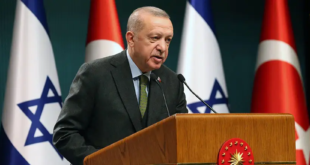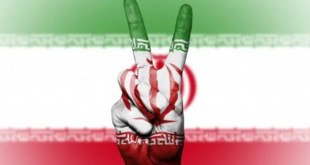 GAZA (Reuters) – An Egyptian-brokered cease-fire between Israel and Palestinian militants in the Gaza Strip that could ease a crippling Israeli blockade of the coastal territory will begin Thursday, Egypt and Hamas said.
GAZA (Reuters) – An Egyptian-brokered cease-fire between Israel and Palestinian militants in the Gaza Strip that could ease a crippling Israeli blockade of the coastal territory will begin Thursday, Egypt and Hamas said.
The announcement came on a day when Israel launched air strikes that killed six militants in Gaza. A cease-fire would aim to end rocket and mortar bomb attacks on Israel from the coastal enclave and Israeli raids and air strikes in the territory.
“Both sides have pledged to halt all hostilities and all military activities against each other,” Egyptian Foreign Ministry spokesman Hossam Zaki said in Cairo Tuesday, after weeks of separate talks with Israel and Hamas.
Confirming details provided to Reuters by a Palestinian official in Gaza Tuesday, Zaki said the truce would go into effect at 6 a.m. (11:00 p.m. EDT) Thursday.
Israel has said it would continue preparing for possible large-scale military action should a truce fall apart.
Hamas leader in Gaza Mahmoud al-Zahar confirmed that militant groups had agreed to a cease-fire with Israel.
“We … as Palestinian factions, agreed upon a bilateral, immediate cease-fire between the Palestinian side and the Israeli side,” Zahar told reporters in English during a news conference in Gaza City. He said the truce was intended to last six months.
Israel’s Defense Minister Ehud Barak sounded a more cautious tone but said Israel would give it every chance.
“It’s early to herald a cease-fire, and even if it were to happen … it is difficult to estimate how long it will last. The test will be in the implementation but it is important to give it a chance,” Barak said in a speech north of Tel Aviv.
The Israeli defense ministry said one of its senior officials, Amos Gilad, was flying to Cairo later Tuesday to be updated on the progress of the truce negotiations.
Senior Hamas leader Ismail Haniyeh said his group believed the cease-fire would hold and would prove beneficial to the some 1.5 million Palestinians living in the coastal enclave.
“We believe that what was agreed upon will last and the Palestinian people will see the fruits of their endurance,” Haniyeh said.
The White House had no comment on reports of the truce.
U.S. officials, who reject contact with Hamas because they view it as a terrorist organization, were dubious, and dismissive of suggestions they were being eclipsed as peace brokers.
“We’ll see first of all whether there is actually an agreement,” State Department spokesman Tom Casey said. “Even if this is a true report, I think, unfortunately, it hardly takes Hamas out of the terrorism business.”
BLOCKADE
Israeli and Palestinian officials said earlier that under any truce accord, the blockade Israel imposed on the Gaza Strip after Hamas seized the territory a year ago from Palestinian President Mahmoud Abbas’s more secular Fatah faction would be eased gradually and partially.
Israel has allowed in humanitarian aid but has cut back on the supply of non-essential goods, such as construction materials, as well as fuel, saying Gazans could not expect to lead normal lives while Israelis were under rocket attack.
“If Hamas keeps the cease-fire, we can gradually deliver more goods and supplies,” an Israeli official said.
He added that any commitment to the amount of supplies Israel would allow into Gaza would be kept “vague on purpose,” and that the enclave’s main crossing to the outside world, the Rafah terminal along the Egyptian frontier, would remain closed for now.
In pursuing a truce, Hamas has sought a reopening of crossings, including at Rafah.
The Israeli official said Rafah could reopen only if there was “significant progress” on the release of Israeli soldier Gilad Shalit who was abducted by Gaza militants in a cross-border raid two years ago.
A Palestinian source familiar with the cease-fire negotiations said the Israeli-run Karni and Sufa crossings would step up operations three days after the truce takes effect, with the flow of goods set at 30 percent of the levels before Hamas took over the Gaza Strip.
Ten days after the truce begins, Israel would ease limitations at Karni and Sufa, the source added, although some restrictions on certain goods would remain in place.
Zahar confirmed at the news conference that Egypt would invite envoys of Hamas, Fatah and the European Union to discuss arrangements for reopening the Rafah border crossing two weeks after the truce goes into effect.
These talks would be held in parallel with negotiations on a prisoner swap for Shalit.
 Eurasia Press & News
Eurasia Press & News



